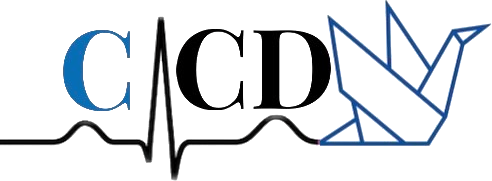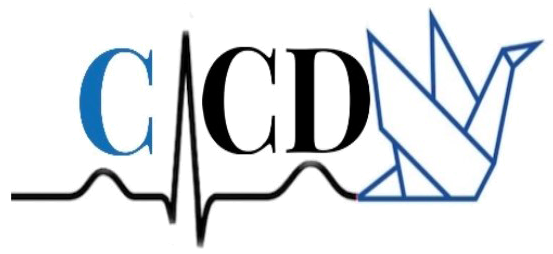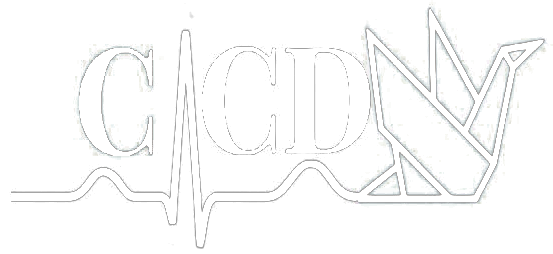
The Link Between Lifestyle and Signs of an Unhealthy Heart
The signs of an unhealthy cardiovascular system are not always obvious, but lifestyle plays a major role in determining cardiac health. Poor diet, lack of exercise, high stress levels, and bad habits like smoking or drinking can all increase the risk of heart disease. Over time, these factors contribute to warning signs such as high blood pressure, irregular heartbeats, and shortness of breath.
For private clinics, early detection of cardiac health problems is essential for effective treatment. Many clinics rely on expert ECG analysis to assess heart function and detect potential issues in patients. ECG services play a vital role in private healthcare, helping clinics provide faster and more accurate cardiac assessments. Find out more in our article on why ECG diagnostic services are essential for private clinics.
This article explores how everyday habits impact cardiac health, the warning signs to look out for, and what clinics can do to help patients make positive changes. Understanding the link between lifestyle and heart disease is key to preventing serious complications.
Poor Diet and the Signs of an Unhealthy Heart

What you eat has a direct impact on your heart health. A poor diet filled with processed foods, high sugar, and excess salt can lead to serious heart problems over time. Many people don’t realise that their daily food choices could be contributing to the symptoms of an unhealthy heart.
How Diet Affects the Heart
Eating too many unhealthy foods can lead to:
- High blood pressure – Too much salt causes water retention, increasing blood pressure and making the heart work harder.
- High cholesterol – Saturated and trans fats found in fried and processed foods can clog arteries, increasing the risk of heart disease.
- Weight gain – Extra weight puts pressure on the heart, making it harder to pump blood efficiently.
Common Signs Linked to Poor Diet
If someone has been eating poorly for years, they may start noticing symptoms such as:
- Feeling short of breath after light activity
- Swollen feet or ankles due to fluid retention
- Chest discomfort or tightness
- Unexplained fatigue
Healthier Food Choices for a Stronger Heart
Private clinics that offer dietary guidance can help patients reduce their risk of heart disease. Encouraging small changes, like swapping processed snacks for fresh fruit or reducing salt intake, can make a big difference. A heart-healthy diet includes:
- Plenty of vegetables and whole grains for essential nutrients
- Lean proteins like fish, chicken, and legumes instead of processed meats
- Healthy fats from nuts, seeds, and olive oil instead of fried foods
By making better food choices, people can reduce their risk of developing serious heart problems and avoid the signs of an unhealthy heart before it’s too late.
Lack of Exercise and How It Leads to an Unhealthy Heart

Regular physical activity keeps the heart strong, but many people don’t get enough movement in their daily lives. A sedentary lifestyle, where most of the day is spent sitting, can lead to serious cardiac health problems over time. Without exercise, the heart and blood vessels struggle to work efficiently, increasing the risk of high blood pressure, obesity, and heart disease.
How a Sedentary Lifestyle Affects the Heart
Not moving enough can cause:
- Poor circulation – Less movement means slower blood flow, which can lead to blood clots or high blood pressure.
- Weaker heart muscles – Just like any other muscle, the cardiovascular system needs exercise to stay strong. Without regular activity, it becomes less efficient.
- Increased risk of diabetes – A lack of exercise contributes to weight gain and insulin resistance, both of which put extra strain on the heart.
Signs of Unhealthy Cardiac Health Due to Lack of Exercise
Over time, people who are inactive may experience:
- Shortness of breath, even with light movement
- Fatigue and low energy levels
- Increased resting heart rate
- Difficulty recovering after physical activity
Encouraging Heart Healthy Movement
Even small amounts of exercise can make a difference. Clinics that provide cardiac assessments may also recommend lifestyle adjustments to improve heart health. Simple activities like walking, cycling, or even stretching throughout the day can help prevent the signs of an unhealthy cardiovascular system.
For those with existing heart conditions, low-impact exercises like swimming or yoga can improve circulation without putting too much strain on the heart. Aiming for at least 30 minutes of movement most days of the week can significantly lower the risk of heart disease and keep the heart working at its best.
Stress and Its Hidden Impact on Heart Health
Stress is often overlooked when it comes to heart health, but it plays a big role in the development of cardiovascular problems. Long term stress triggers the body’s “fight or flight” response, causing increased heart rate, higher blood pressure, and hormonal imbalances. Over time, this can contribute to the signs of an unhealthy cardiovascular system and raise the risk of serious heart conditions.
How Stress Affects the Heart
When stress levels remain high, the body releases hormones like cortisol and adrenaline. These can:
- Raise blood pressure – Stress hormones cause the blood vessels to tighten, making it harder for the heart to pump blood efficiently.
- Increase heart rate – Chronic stress keeps the heart working harder than necessary, which can lead to strain over time.
- Promote unhealthy habits – Many people cope with stress through smoking, drinking, or overeating, all of which negatively impact heart health.
Signs of an Cardiovascular System Linked to Stress
People experiencing long term stress may notice:
- Irregular heartbeats or palpitations
- Chest tightness or discomfort
- Constant fatigue or difficulty sleeping
- High blood pressure readings
Managing Stress for a Healthier Heart
Private clinics can play a role in helping patients manage stress-related heart risks. Services such as heart monitoring, ECG testing, and lifestyle guidance can help detect early warning signs. At Crane Cardiac Diagnostics, we support private healthcare providers by offering expert ECG analysis, helping clinics assess heart health more accurately.
Encouraging patients to manage stress through activities like deep breathing, mindfulness, or exercise can reduce strain on the heart. By addressing stress early, clinics can help patients prevent the signs from leading to more serious conditions.
For those attending an ECG test, proper preparation can improve accuracy and ensure reliable results. Learn more in our guide on how to prepare for your ECG appointment for accurate results.
Smoking, Alcohol, and Their Link to an Unhealthy Heart
Smoking and excessive alcohol consumption are two of the biggest lifestyle factors contributing to signs of unhealthy cardiac health. Both habits put extra strain on the cardiovascular system, damaging blood vessels and increasing the risk of heart disease over time. Many people underestimate how much smoking and drinking can affect cardiovascular health, but the long term impact can be severe.
Smoking is particularly harmful because it reduces oxygen flow to the heart. The chemicals in cigarettes cause blood vessels to narrow, making it harder for the heart to pump efficiently. Over time, this increases blood pressure and raises the risk of heart attacks. Nicotine also speeds up the heart rate, forcing it to work harder than normal. Additionally, smoking thickens the blood, making clots more likely to form, which can lead to strokes or sudden cardiac events.
Excessive alcohol consumption can be just as damaging. Drinking too much raises blood pressure, weakens heart muscles, and disrupts the heart’s natural rhythm. Heavy drinking over time can lead to conditions like cardiomyopathy, where the heart struggles to pump blood properly. While occasional alcohol intake may not be harmful, consistent over consumption increases the likelihood of heart disease. People who smoke and drink regularly often experience breathlessness, chest pain, and irregular heartbeats, all of which are signs of an unhealthy heart, cutting back on these habits, or quitting altogether, can dramatically improve heart health and lower the risk of serious complications.
Sleep and Heart Health: Why Rest Matters

Many people overlook the importance of sleep when it comes to cardiac health. Poor sleep habits, whether due to stress, lifestyle choices, or sleep disorders, can increase the risk of heart disease. Research shows that people who consistently get too little sleep are more likely to develop high blood pressure, irregular heartbeats, and other signs of an unhealthy heart, which can worsen over time if left unaddressed.
One major concern is how sleep deprivation affects blood pressure. When you sleep, your blood pressure naturally drops, allowing your heart to rest. However, if you don’t get enough sleep, your blood pressure remains elevated for longer periods, putting extra strain on your heart. Over time, this can lead to long term hypertension and a higher risk of heart disease. Poor sleep is also linked to higher stress hormone levels, which can trigger inflammation and increase the likelihood of developing signs of an unhealthy heart, such as chest discomfort and fatigue.
Another serious issue is sleep apnea, a condition where breathing repeatedly stops and starts during sleep. This disrupts oxygen flow and forces the heart to work harder, increasing the risk of strokes, arrhythmias, and heart failure. Many people with undiagnosed sleep apnoea experience extreme fatigue, headaches, and difficulty concentrating during the day, signs that their cardiac health may already be at risk. Encouraging better sleep habits, such as maintaining a regular sleep schedule and avoiding stimulants before bed, can help improve overall cardiac health and reduce the chances of developing serious cardiovascular issues.
FAQ’s:
What are the earliest symptoms of an unhealthy heart?
The most common early signs include shortness of breath, chest discomfort, fatigue, and dizziness. Some people also experience irregular heartbeats or swelling in the legs and feet due to poor circulation.
Can lifestyle changes reverse signs of an unhealthy heart, or is medical treatment always necessary?
Yes, making changes like improving your diet, exercising regularly, reducing stress, and quitting smoking can significantly improve cardiac health. Early intervention can help prevent long term damage.
How does stress impact heart health?
Chronic stress increases blood pressure and heart rate, putting extra strain on the heart. Over time, this can contribute to heart disease, arrhythmias, and other cardiovascular issues.
Does poor sleep really affect the heart?
Yes, long term sleep problems can lead to high blood pressure, irregular heart rhythms, and increased inflammation in the body, all of which raise the risk of heart disease.
How can private clinics help detect an unhealthy heart?
Private clinics play a key role in heart health by offering ECG testing, blood pressure monitoring, and lifestyle assessments. At Crane Cardiac Diagnostics, we provide expert ECG analysis services to help clinics identify early signs of heart disease and ensure their patients receive timely care.



